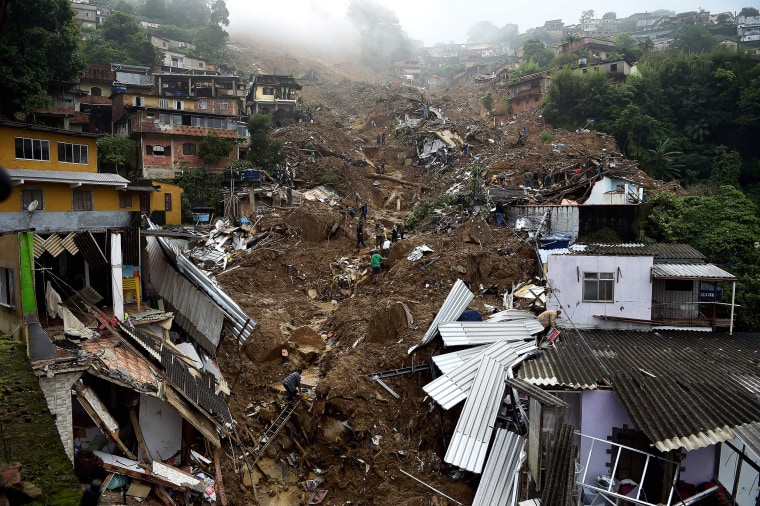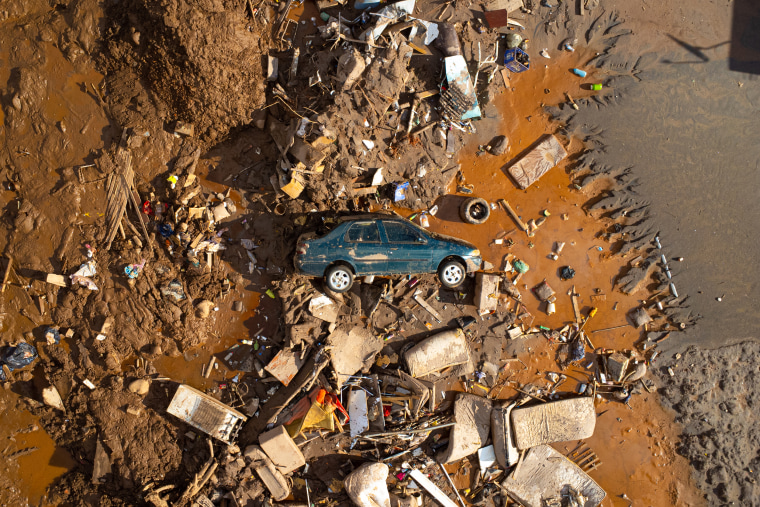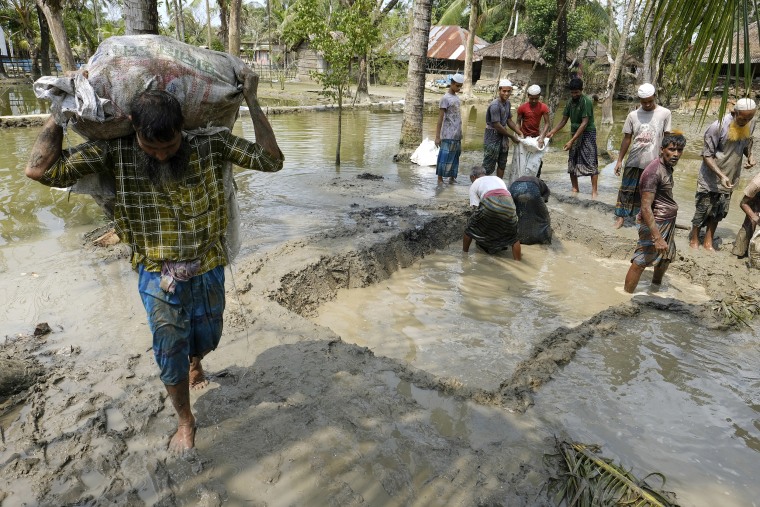Climate change is no longer a far-off threat — it’s an ongoing disaster that is already endangering humans and natural environments around the world, according to an urgent new report from the United Nations that says the world is running out of time to stave off the most devastating consequences of global warming.
The report, released Monday by the U.N.’s Intergovernmental Panel on Climate Change, or IPCC, outlines the increasing risk that climate change poses to human health, infrastructure, the stability of food and water resources and the biodiversity of the planet’s ecosystems.
The assessment, produced by 270 scientists from 67 countries who make up the IPCC’s so-called Working Group II, represents broad consensus within the research community about how global warming is affecting people and the environment — and the potential consequences of inaction.
“The scientific evidence is unequivocal: climate change is a threat to human wellbeing and the health of the planet,” Hans-Otto Pörtner, a climatologist and co-chair of the IPCC’s Working Group II, said in a statement. “Any further delay in concerted global action will miss a brief and rapidly closing window to secure a liveable future.”
The report found humanity will have to contend with multiple climate hazards over the coming decades if global warming exceeds 1.5 degrees Celsius (2.7 degrees Fahrenheit). Human-caused climate change has already contributed to the planet’s warming about 1.1 degrees Celsius (2 degrees Fahrenheit) above pre-industrial levels.
The effect of climate change on the availability of food and water is particularly worrisome. Heat waves, droughts and floods — all of which are aggravated by climate change — have already exposed millions of people around the world to acute food and water insecurity, according to the report.
“Overall, the picture is stark for food systems,” one of the authors of the report, Rachel Bezner Kerr, a professor of global development at Cornell University, said Sunday in a news briefing. “No one is left unaffected by climate change.”
Although climate change is expected to hit every region of the planet, the assessment found that people in Africa, Asia, South America and Central America are particularly vulnerable and at greater risk of negative consequences, including death. Residents of the Arctic and small island countries similarly shoulder an unequal burden of climate impacts, according to the report.

Bezner Kerr said taking aggressive action to reduce greenhouse gas emissions and slow the pace of climate change will help reduce the more dire consequences of global warming, adding that “every increased amount of warming will increase the risk of severe impacts.”
The IPCC report also highlighted the mounting threat of global warming to human health, including the impact of climate change on people’s mental well-being — a first for the IPCC. Emerging research has shown, for instance, that increased exposure to heat waves, wildfires and other extreme weather events can take a toll on mental health.
Among the dire warnings addressed in the new assessment is that the hardest-hit people and ecosystems are also the ones least able to cope, including lower-income populations and low-lying coastal regions that are at risk from rising sea levels.
Many of the risks worsened by climate change are interwoven with issues already faced in those communities, such as rising social inequality, the unsustainable use of natural resources, losses and damages from disasters and other extreme weather events and ongoing repercussions from the Covid-19 pandemic.
“Our assessment clearly shows that tackling all these different challenges involves everyone — governments, the private sector, civil society — working together to prioritize risk reduction, as well as equity and justice, in decision-making and investment,” Working Group II co-chair Debra Roberts, the head of the Sustainable and Resilient City Initiatives Unit in eThekwini Municipality in Durban, South Africa, said in a statement.

The cost of inaction, on the other hand, could be devastating, according to the report. In addition to threats to humans, climate change is causing irreversible impacts on certain species and ecosystems, said an author of the report, Camille Parmesan, an adjunct professor of geological sciences at the University of Texas at Austin.
“It’s very, very clear that wild species and natural systems are already being pushed right up against hard limits,” Parmesan said. “That’s why we’re seeing species going extinct. That’s why we’re seeing the most sensitive ecosystems — the mountaintops, the High Arctic — having massive changes.”
John Kerry, the U.S. special presidential envoy for climate, said the IPCC assessment paints a “dire picture” of how humanity is already being affected by global warming and outlines the risks of ignoring climate science.
“We have seen the increase in climate-fueled extreme events, and the damage that is left behind — lives lost and livelihoods ruined,” Kerry said in a statement. “The question at this point is not whether we can altogether avoid the crisis — it is whether we can avoid the worst consequences.”
The IPCC, established in the late 1980s, consists of thousands of scientists across 195 member governments who pore over the most recent published and peer-reviewed research on global warming and compile the findings into a report on the current state of the climate.
The new report is part of the IPCC’s latest summary on climate change, called the Sixth Assessment Report, or AR6. The full assessment consists of four sections: the Working Group I report on the science of climate change, which was released last year; the Working Group II report on the vulnerabilities and socioeconomic impacts; the upcoming Working Group III report on possible ways to mitigate climate change, which will be released in April; and the Synthesis Report, which reviews the findings from all of the working groups and integrates relevant information for policymakers.

